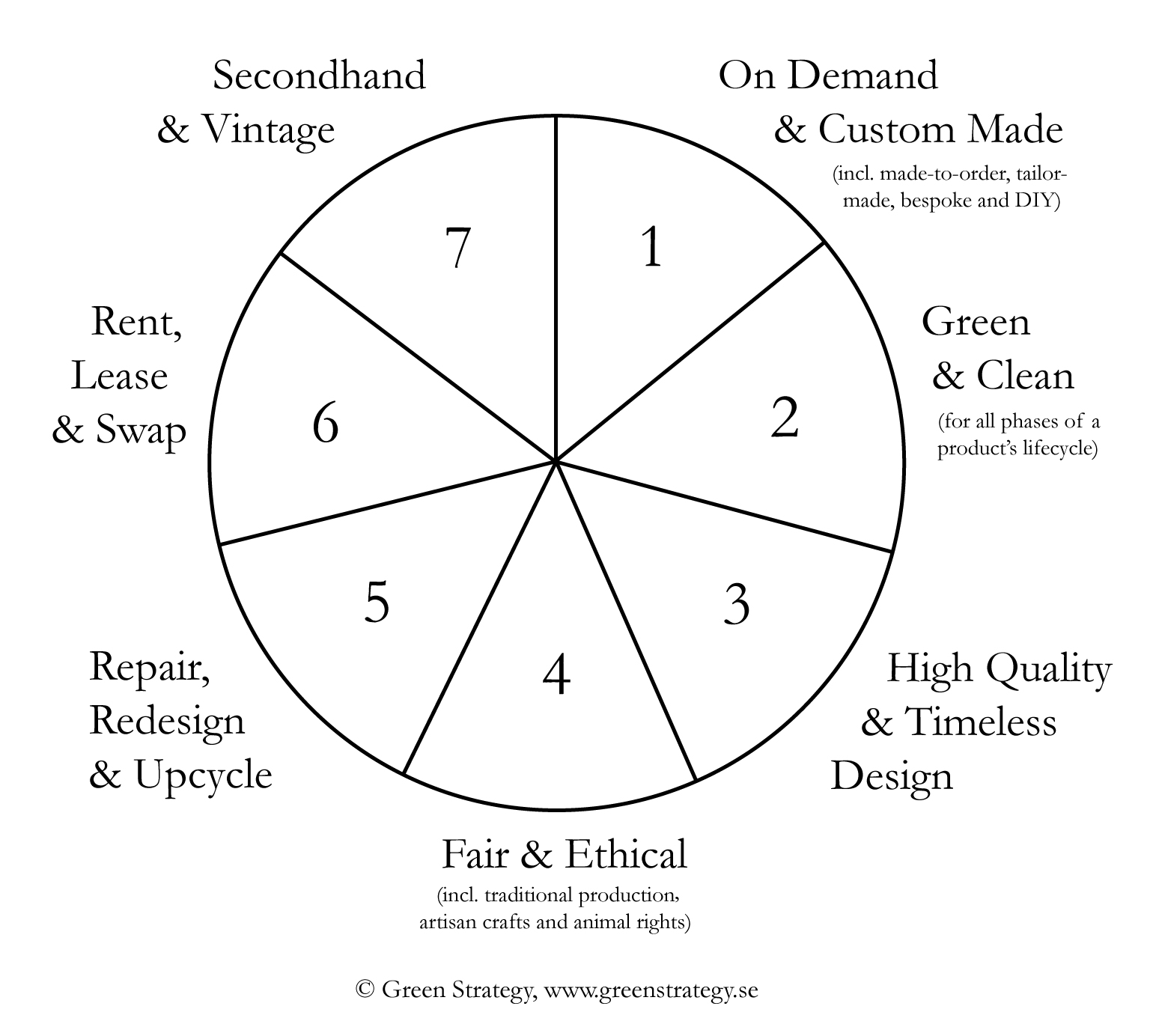Cape Town Sustainable Fashion: Environmentally Friendly Trends to View
Cape Town Sustainable Fashion: Environmentally Friendly Trends to View
Blog Article
Remain Ahead of the Curve by Checking Out Innovative Fashion Fads
In a market as vibrant as fashion, staying in advance entails greater than just following current patterns-- it requires an expedition of development. Smart textiles, for circumstances, are changing garments into functional work of arts, while 3D printing is changing style processes with its customizable, waste-reducing capacities. As sustainability ends up being a cornerstone, innovations like environmentally friendly materials and round fashion techniques are improving environmental duty - Cape Town Sustainable Fashion. Moreover, the convergence of modern technology and fashion heralds a brand-new era of customer interaction. How, after that, can these emerging patterns redefine the future of fashion, and what effects do they hold for brands looking for to flourish in this advancing landscape?

Embracing Smart Textiles
In recent years, the garment industry has actually observed a transformative change with the assimilation of smart textiles, an advanced advancement that mixes innovation with material. This advancement stands for not just a blend of appearances and functionality but also a significant leap towards sustainability and personalization in style. Smart fabrics, additionally referred to as e-textiles, installed innovative electronic devices such as sensors and conductive threads within the fabric, enabling garments to interact with the setting or the user.
These textiles are developed to monitor physiological criteria, such as heart price or body temperature, offering real-time health analytics. Past wellness applications, wise textiles are additionally being made use of for flexible clothes, which can change shade or pattern in action to environmental stimulations, hence using a dynamic fashion experience.
In addition, the development of energy-harvesting textiles that generate power from movement or sunlight is leading the method for self-sufficient wearable technology. This technology is interesting eco mindful customers and designers aiming to reduce the eco-friendly footprint of style. As r & d in this area development, smart fabrics are expected to come to be increasingly widespread, reshaping the landscape of modern-day fashion with their multifunctional capacities.
The Increase of 3D Printing
Changing the manufacturing landscape, 3D printing has actually become a game-changer in the style industry. This sophisticated technology has actually allowed developers to push the borders of imagination, generating complex and personalized garments that were previously unbelievable. By leveraging digital style and additive production, 3D printing helps with the production of complex geometries and patterns, enabling developers to experiment with new appearances and structures.
A noteworthy benefit of 3D printing in vogue is its ability to create on-demand, decreasing waste and decreasing stock demands. This efficiency not only enhances manufacturing procedures yet also permits fast prototyping, making it possible for designers to bring their visions to life in a shorter timeframe. Moreover, 3D printing sustains customization somewhat unequaled by standard approaches, offering customized fits and distinct styles customized to specific customer choices.
The surge of 3D printing has actually additionally equalized style, making it obtainable to arising developers that can currently produce top notch items without significant economic investment in standard production facilities. As innovation continues to advancement, the apparel industry is positioned to harness the complete possibility of 3D printing, checking out new materials and techniques that will certainly redefine how style is developed and created.
Sustainable Fashion Innovations
As the garment industry comes to grips with journalism requirement for ecological duty, lasting fashion advancements have emerged at the forefront of transformative adjustment. The growing recognition of environmental impact has sustained a shift towards even more eco-conscious methods and products. Developers and brands are currently focusing on sustainability, incorporating approaches that lessen waste and decrease carbon footprints.
One substantial advancement is the surge of circular style, which highlights recycling and upcycling to extend the lifecycle of garments. This technique not only lowers waste however additionally motivates consumers to embrace a more conscious approach to garments consumption. In addition, using sustainable products, such as organic cotton, hemp, and recycled polyester, has gained traction. These products require much less water and power during manufacturing, considerably lessening environmental influence.
An additional advancement hinges on the fostering of innovative dyeing methods that make use of waterless processes or natural dyes, consequently lowering the vast amounts of water and chemicals generally made use of in textile dyeing. Additionally, improvements in biotechnology have actually brought about the creation of lab-grown leather and materials, using cruelty-free and eco-friendly alternatives to conventional materials. With these pioneering efforts, the fashion market is making significant strides in the direction of a much more lasting future.

Tech-Integrated Apparel
Tech-integrated apparel stands for a revolutionary combination of fashion and modern technology, reshaping how people engage with their clothes. This innovative domain name is marked by the inclusion of clever fabrics and embedded electronic elements, boosting both performance and aesthetic allure. From physical fitness trackers embedded in sports apparel to heated coats controlled using mobile phone applications, tech-integrated clothing offers customers unprecedented comfort and adaptability.
Introducing brand names are driving this pattern, focusing on creating garments that respond to environmental stimulations or customer commands. As an example, some garments can alter color or pattern in reaction to temperature shifts, while others include biometric sensing units to keep an eye on health and wellness metrics like heart rate or anxiety degrees. The seamless integration of modern technology right into textiles also includes ecological sustainability, with initiatives read to develop self-cleaning fabrics or garments that get used to climate condition, therefore minimizing the demand for numerous layers.
Additionally, the introduction of wearable modern technology is not reference simply restricted to clothes but reaches devices like watches and eyewear, more expanding the scope of tech-integrated style. As the market continues to introduce, the potential for modification and customization in apparel expands, providing customers special, tech-enhanced fashion experiences that accommodate their individual demands and preferences.
Future of Virtual Style
Recently, the future of digital fashion has actually emerged as a transformative pressure within the industry, leveraging improvements in digital innovation to redefine how fashion is developed, experienced, and taken in. By incorporating enhanced fact (AR), virtual truth (VR), and 3D style devices, designers can currently craft immersive and interactive experiences that go beyond traditional fashion borders. Virtual fashion permits the creation of garments that exist exclusively in electronic environments, using endless possibilities for technology without the limitations of physical production.
This electronic change not only provides possibilities for creative expression but likewise addresses sustainability problems inherent in conventional style techniques. Cape Town Sustainable Fashion. By eliminating the requirement for physical sources, digital style reduces waste and reduces carbon footprints. Moreover, the surge of virtual fashion lines up with the boosting customer need for individualized and special experiences, as digital garments can be tailored and customized to specific preferences easily

Verdict
The style industry's future lies in the combination of ingenious modern technologies and sustainable practices. Virtual fashion is poised to redefine consumer interactions.
In current years, the style sector has actually witnessed a transformative shift with the integration of wise textiles, a a knockout post sophisticated technology that mixes technology with fabric.As the fashion industry grapples with the pressing need for environmental responsibility, sustainable fashion developments have emerged at the forefront of transformative change.In recent years, the future of virtual fashion has emerged as a transformative force within the sector, leveraging advancements in electronic modern technology to redefine just how style is produced, experienced, and taken in. The increase of online fashion aligns with the increasing customer need for tailored and one-of-a-kind experiences, as digital garments can be tailored and customized to individual preferences with convenience.
The style market's future lies in the combination of ingenious technologies and sustainable techniques.
Report this page